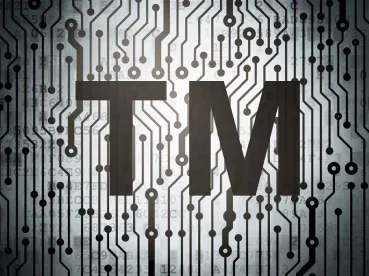The Delaware bankruptcy court recently decided that a debtor could not assign a trademark license absent the consent of the licensor. The court concluded that federal trademark law and the terms of the license precluded assignment without consent. Because the debtor could not assign the license under any circumstances (consent was not forthcoming), the court held that cause existed to annul the automatic stay to permit the licensor to “move on with its trademark and its business.”
The debtors (Rupari) engaged in the manufacture, sale and distribution of frozen meat products. The licensor (Roma) granted Rupari a trademark license to use the “Tony Roma” mark. After claiming a breach by Rupari, Roma purported to terminate the license. Rupari denied any breach, asserted that Roma’s efforts to terminate the license were ineffective, and eventually filed for bankruptcy.
Immediately after its bankruptcy filing, Rupari sought to sell substantially all of its assets. The sale provided that the assignment of the Roma license was a closing condition. Rupari also filed a declaratory judgment action seeking to have all license termination efforts declared void. Roma objected to the sale on the grounds that it had terminated the license prepetition (and therefore Rupari had no license to assign), and alternatively, if the license was intact, Rupari could not assign the license because Roma would not consent. While this skirmish was pending, Rupari revised its sale agreement to remove the assignment of the license as a closing condition and reduced the purchase price by $2 million. Rupari then dismissed the lawsuit.
Shortly after dismissal of the lawsuit, Roma issued a press release announcing that it had entered into a new exclusive licensing arrangement for its Tony Roma mark. Rupari reacted by filing a second lawsuit seeking a determination that Roma had willfully violated the automatic stay and renewing the declaratory judgment issues. A few weeks later, the court approved the Rupari sale without assignment of the license.
In considering the second lawsuit, the court cited federal trademark law for the general position that a non-exclusive trademark license cannot be assigned absent express authorization from the licensor. Rupari stressed that the license agreement modified this general rule since the parties previously had amended the Roma license to replace strict anti-assignment language with a provision that permitted assignment of the license (a) by operation of law or (b) in connection with a sale of all or substantially all assets but only with the other party’s consent, which could not be unreasonably withheld.
Focusing on the latter provision, Rupari argued that Roma’s refusal to consider “well-qualified prospective bidders” as assignees of the license breached the “consent not unreasonably withheld” requirement. While perhaps a meritorious position in some circumstances, the court found Rupari had effectively mooted the argument by closing the sale (without the license) before resolving the assignment issues. Because the license was not being assigned “in connection with a sale,” the consent issue was not implicated. Accordingly, citing Third Circuit precedent, the court held that because there were no circumstances under which Rupari could now assign the license, “cause” existed to annul the automatic stay to permit Roma to proceed with licensing its trademark to another licensee.



 />i
/>i

